In Foshan, a feast of "Guochao", or "Chinese fashion trend", has been on for several weekends. A few days ago, a Guochao cultural fair was held in Chencun Town, Shunde District, attracting the citizens and tourists with interesting stalls, "Hanfu" or "Han-style clothing" fashion show and Cantonese opera folk music activity.
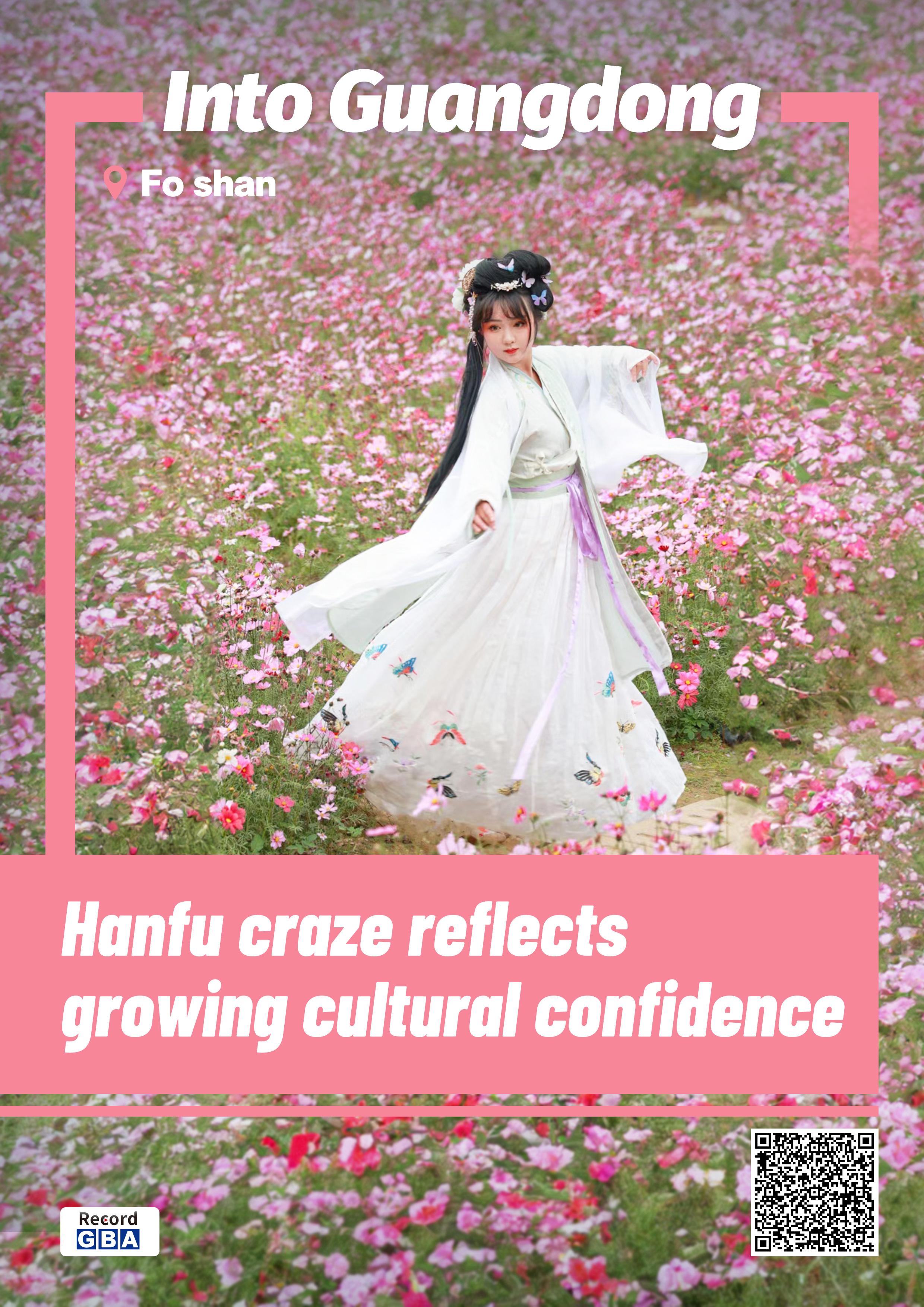
From raising eyebrows to receiving compliments
Li Piao, a model in the Hanfu fashion show, is among the first batch of Hanfu lovers in Foshan. In 2011, when she was a student, she fell in love with Hanfu, which was still a niche at that time, and was ushered in a brand new world. Since then, she became obsessed with costume restoration and vintage make-ups, and submerged herself in the learning of traditional etiquette, poetry, tea ceremony and folk music. Her passion for traditional Chinese culture was ignited by a suit of Han-style clothes.
However, at the very beginning, Hanfu enthusiasts were not only viewed with different eyes in the society, but also had a hard time earning support from their family. But nowadays, with the rise of "Guochao", Hanfu has become more and more popular. As the number of young people wearing Hanfu on the streets increases, the general public are gradually changing their mind.
"These days, when a kid sees my dress and says that it is so beautiful, her parents will tell her, 'This is Hanfu, a traditional costume of our country.'"
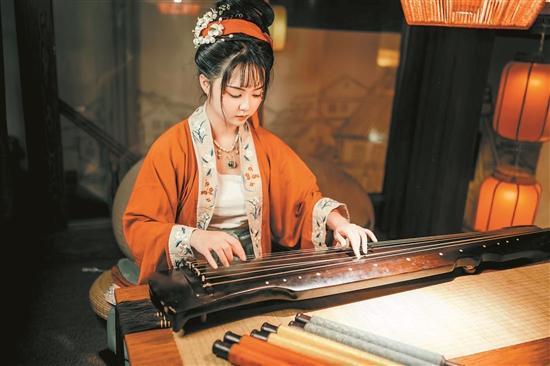
From self-making to online purchasing
In March this year, an event themed the Birthday of All Flowers was held in Foshan, during which a large number of youngsters dressing in Hanfu gathered in the Liang Garden. Li Piao was one of them. She said that she attended this event at the invitation of Xuan Miao, who was also among the first batch of Hanfu lovers in Foshan. Xuan Miao fell in love with Hanfu coincidentally when she was preparing for her wedding. While searching the Internet for wedding information, she caught sight of Xiuhe Dress and Longfenggua, kinds of traditional Chinese wedding clothes, as well as the Hanfu.
To find like-minded friends with the same interests, Xuan Miao started to convene a "Tong Pao Ya Ji" (a gathering of Hanfu enthusiasts) online. In the context of Hanfu culture, "Tong Pao" refers to a group of friends, who share their emotional recognition and the spirit of mutual assistance by wearing Hanfu, while "Ya Ji" refers to a gathering of people with the same hobbies.
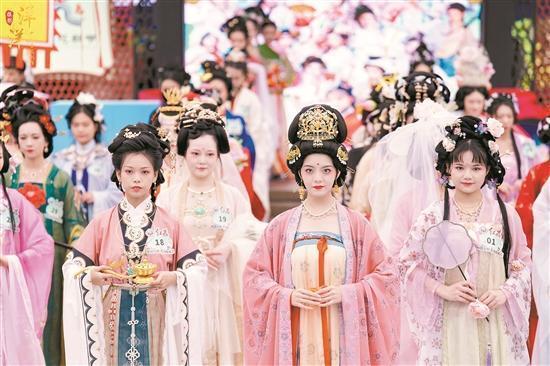
"At the beginning, there were almost no clothing stores selling Hanfu, so we made use of some beautiful curtain cloth and turned it into Han-style clothes. We also tried to tie the hair and do the make-up all by ourselves. Early Hanfu lovers were truly versatile."
Today, more than a decade later, people are able to purchase Hanfu in different styles on every e-commerce platform. They can even rent one offline, asking a stylist to dress them up, and a photographer to catch the most wonderful moment for them.
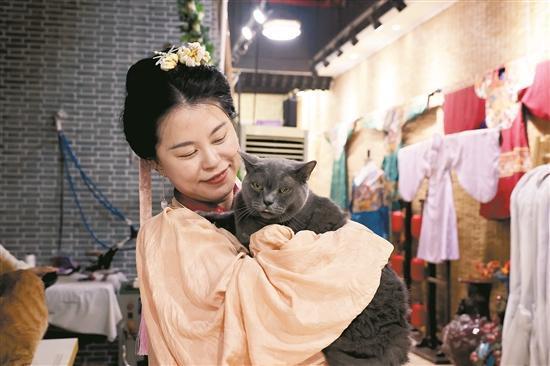
A national trend for the future
In recent years, intangible cultural heritages were brought into the campus and the classrooms in Foshan, allowing the new generation to be influenced by the rich cultural atmosphere since childhood.
"We are turning into the parents of the generation born in the 10s and the 20s. As a Hanfu lover, I have started to teach my kids traditional etiquette and Hanfu culture when they were very young. So they never feel embarrassed about wearing Hanfu or doing the bowing ceremony. Instead, they take it for granted." said Xuan Miao.
Perhaps in another ten years, the Birthday of All Flowers and the Travel-in-Hanfu Day will become customary festivals in China. Since that day is yet to come, the group of Guochao youth will still strive to promote the essence of traditional culture.
视频+图集丨40摄氏度也要汉服出行 !国潮青年无惧高温诠释热爱
在佛山,一连几个周末,国潮盛宴都在上演。
7月中旬,顺德陈村举行良辰正美景·国潮文化市集,不仅有各种有趣的小摊位,还有汉服走秀、粤剧文化私伙局,吸引许多市民游客驻足。
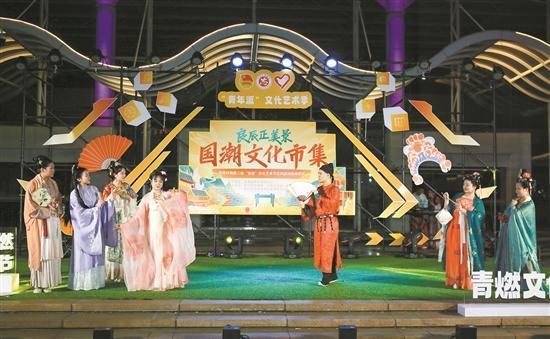
从被盯着看到被夸赞
参与汉服走秀的离飘是佛山早期“入坑”汉服爱好者。2011年,还在上学的她爱上了当时还很小众的汉服,直接打开新世界的大门。她不仅研究起服饰复原、妆容考古,还不断学习传统礼仪、诗词歌赋、茶道、民乐等。一件衣服激发了她对中国传统文化领域探究的热情。
然而,早期的汉服爱好者不仅面临社会的异样眼光,还会遇到家人的不理解。随着国潮兴起,汉服的出圈,穿着汉服走上街头的年轻人越来越多,社会大众的观念逐渐发生变化。
“现在小孩子看见我的裙子大声夸赞好漂亮,然后家长就会跟孩子讲‘这是汉服,是我们自己的服装’。”
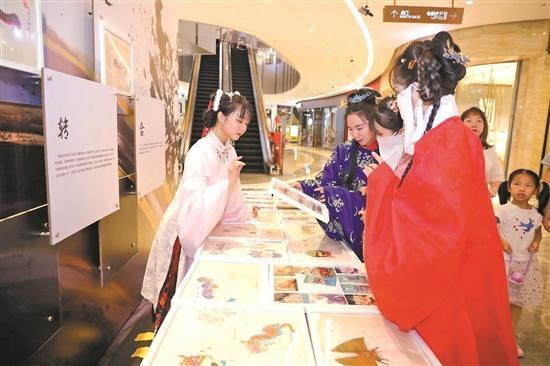
从全能自制到平台自选
今年3月,佛山举办了一场花朝节活动,一大批汉服青年相聚在梁园,离飘也是其中一员。她表示,这场活动是受邀自玄喵。玄喵也是佛山最早的汉服爱好者之一,她“入坑”汉服是机缘巧合。当时准备结婚的她上网搜索婚礼相关信息,看到了秀禾服、龙凤褂,也接触到了汉服。
为了寻找志同道合的朋友,玄喵便在网上召集“同袍雅集”。汉服同袍,是指汉服文化圈内,通过着装汉服以表达情感认同和互助精神的群体,而雅集则是指同好聚会。
“最开始,汉服服装店几乎为零,我们就拿些好看的窗帘布,然后自己学着做服装、扎头型、复原妆容。早期的汉服爱好者可以说是全能的。”
在十几年后的今天,人们打开各大电商平台,就能买到款式各异的汉服,精致独特的头饰,甚至能在线下租赁一套服装,有专业人士为其装扮,摄影师定格最美的瞬间。
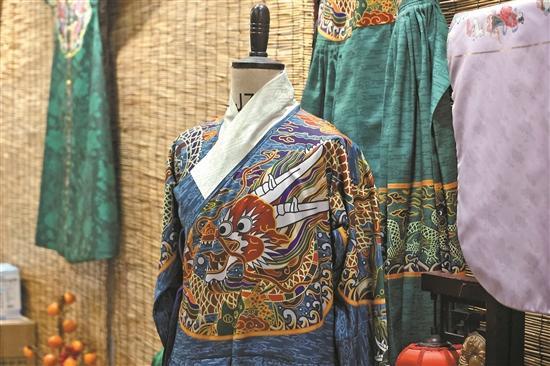
走向未来的国潮
近年来非遗文化走进佛山校园、走进课堂,新一代青少年自小在浓郁的文化氛围里耳濡目染。
“我们这群爱好者也逐渐成为‘10后’‘20后’的父母,好比我的孩子,我从小就教他传统礼仪、汉服文化。所以他们对于穿汉服、行拱手礼不会觉得尴尬,反而觉得理所当然。”玄喵表示。
或许再过十几年,花朝节和汉服出行日会成为人们习以为常的节日。而在这一天到来之前,这群国潮青年依然会努力向更多人传递传统文化的美好。
文丨羊城晚报全媒体记者 杨苑莹 黄松炜
图丨羊城晚报全媒体记者 王泽宝 实习记者 江楚慧
视频丨羊城晚报全媒体记者 王泽宝
视频加工丨黎杰文
翻译丨洪婷
责编丨古司祺
校对丨赵丹丹









